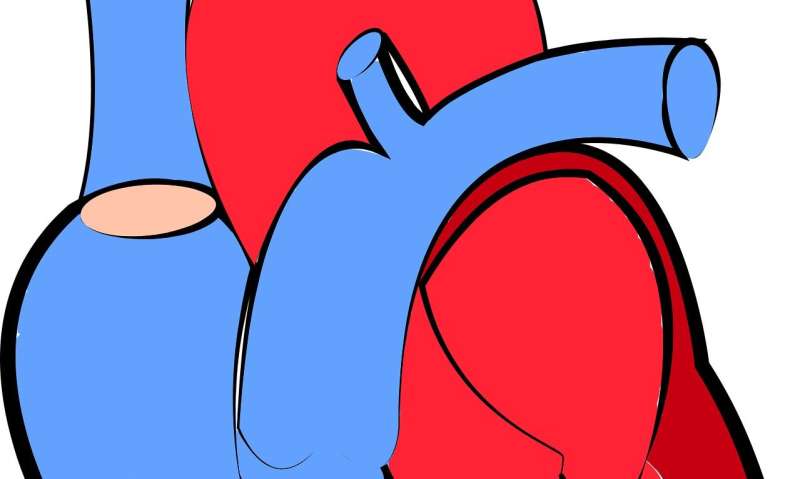Heart transplants from donors with hepatitis C may be safe and could help decrease organ shortage

One-year survival was similar for adults with severe heart failure who received a heart transplant from a donor with hepatitis C compared to those who received hearts from donors who did not have hepatitis C, according to new research published today in the Journal of the American Heart Association, the open access journal of the American Heart Association.
In the United States, more than 6 million people have heart failure and more than 900,000 new cases are diagnosed each year, according to the American Heart Association. The disorder occurs when other types of heart disease weaken the heart until it is unable to pump blood effectively throughout the body. Lifestyle changes and medications can help manage mild heart failure; however, severe cases may require a heart transplant.
Hepatitis C is a viral infection of the liver that spreads through contact with contaminated blood. The infection is spread through use of shared needles, from mother to infant during pregnancy and delivery, or through an organ transplant from someone infected with hepatitis C. If left untreated, hepatitis C can damage the liver, however, with the recent advent of new, direct-acting, antiviral drugs, hepatitis C is much more manageable than it was in the past. In many cases, hepatitis C is curable, which has led to increased use of organs from donors with hepatitis C as the need for heart transplants continues to exceed the supply.
In this study, nearly all patients survived one year after heart transplant, regardless of whether they received a heart from a donor with or without hepatitis C. Specifically, 90% of patients whose donors had hepatitis C survived, compared to a survival rate of 91% for the patients whose donors did not have the infection. Similarly, the rates of drug-treated organ rejection, kidney dialysis to remove toxins from the blood and stroke were similar between the two groups of patients.
"We are encouraged by these results and believe this is a landmark change in our ability to better meet the demand for heart transplantation by increasing the donor supply," said Arman Kilic, M.D., lead study author, assistant professor of cardiothoracic surgery, director of surgery quality and analytics, and co-director of the Center for Cardiovascular Outcomes and Innovation at the University of Pittsburgh Medical Center in Pennsylvania. "It is our hope that more centers will use hepatitis C-positive donors for heart transplantation."
The study included 7,889 U.S. patients at 128 medical centers, aged 18 years and older, who received a heart transplant between January 1, 2016 and December 31, 2018. Researchers compared one-year survival, organ rejection, dialysis and stroke among heart-transplant recipients from donors with hepatitis C to those from donors without hepatitis C. Slightly more than 4% of patients, or 343, received heart transplants from donors with hepatitis C.
Some limitations of the study are that the researchers did not have information about the donors' type of hepatitis C infection, past treatment and whether the heart-transplant recipients later developed the infection. Also, this study examined one-year survival only and included a relatively small number of patients with heart transplants from donors with hepatitis C.
Researchers note broadened implementation of protocols for using organs from donors with hepatitis C and an assessment of longer-term outcomes will be important to help reduce national organ donor shortages.
More information: Journal of the American Heart Association (2020). DOI: 10.1161/JAHA.119.014495



















